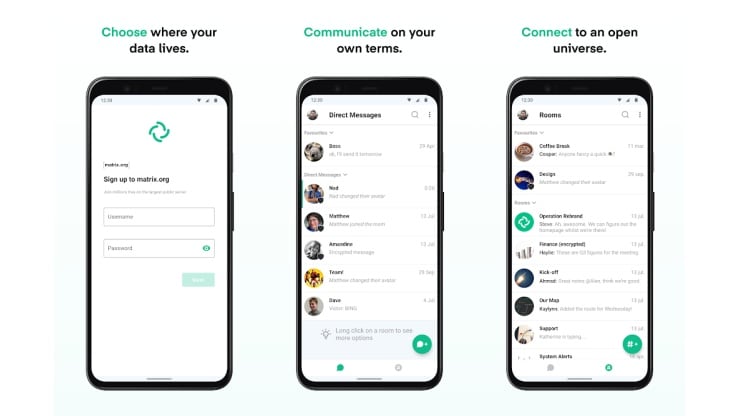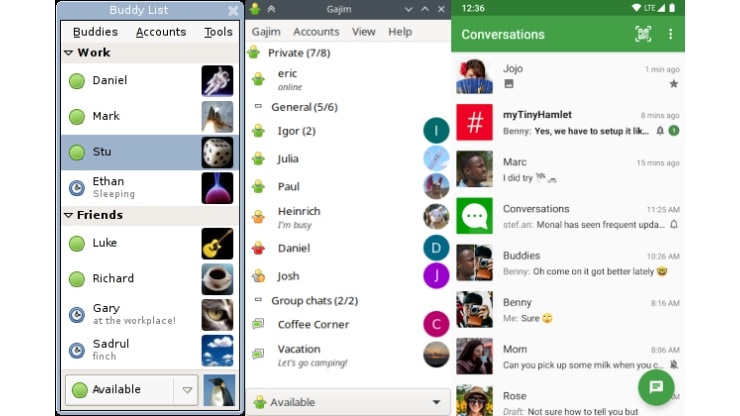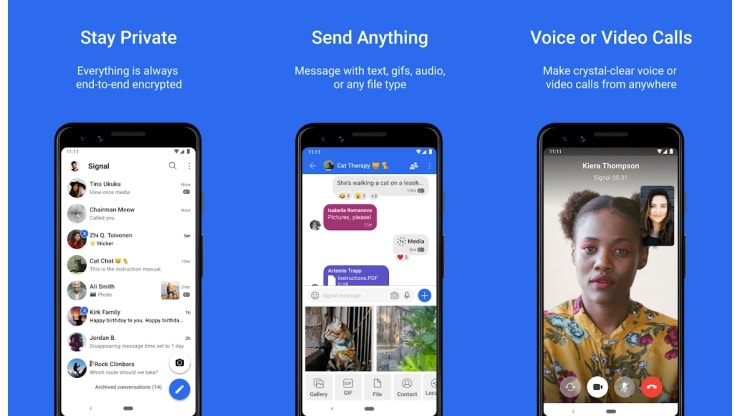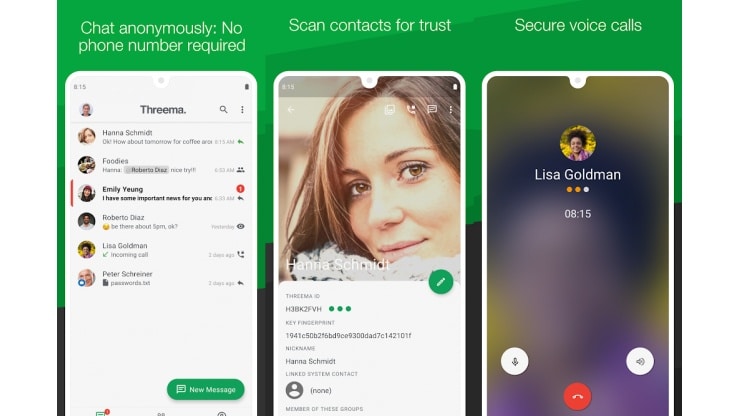Chat communications services have evolved over the decades and years. We have gone from using simple instant messengers and IRC servers, to advanced services that have enabled group audio and video chats. Most of us have settled into WhatsApp, a popular mobile chatting service. It is also usable on the PC on a web browser and a dedicated software, but with some limitations. The communications landscape has seen change since WhatsApp became mainstream. Several competing services have launched claiming higher levels of security, privacy and features. Some of them are better suited for personal communications, others could be used for workplaces.
Telegram

Telegram is quite possibly the hottest communications app around today, after WhatsApp. It has a large user base, and there have been crowds migrating to it. There are several reasons for the popularity. For one, it’s easy to use, and there is an app for practically every platform, that isn’t just a web interface. It supports stickers and there are large libraries available for download, along with GIFs. You can make your own and put them online, for free. There is a large community of developers making bots, that can respond to queries, add games for groups and polls to rooms. There is even support for voice calls within Telegram. If you want to share large files, it even supports files up to 2 GB in size. The desktop app is just as versatile, allowing you to make voice calls to mobile users and vice-versa. Inviting others to a group is simple too. Every group can be assigned a URL, that new users can click on to join, and you can even create temporary invites for specific users. Each group can hold up to 200,000 members, and group administrators get fine moderation controls.
These are just some of the features and Telegram has many more, unseen on other platforms and it is quickly growing. It’s also considered to be a solid, secure chatting tool, especially for private messaging. If you have not tried it yet, now is a good time to.
Element

Element is a software client used to access an extremely secure and decentralized communication network, called Matrix. Element was till recently called Riot.im. The decentralized setup means you can connect to one of hundreds and thousands of services, each set up by different community administrators. So if you really want to, you can set up one for your family or your workplace. The key feature is its security, and Element, like most Matrix clients support end-to-end encryption which makes it practically impossible for anyone to capture and read your conversations. It supports massive group chats and there are already rooms for various topics that you can search for. There is also support for unlimited voice and video calls. Element is one of the popular Matrix clients, and you can find others online such as Spectral, Nheko, RiotX, etc. You can find the entire list here.
Matrix is slowly becoming an enterprise-class solution even for professional setups that want their own secure communications network that can be hosted internally on their networks, rather than on a public setup.
XMPP

XMPP happens to be one of the oldest communication networks around. It was built back in 1998, nearly 22 years ago. In fact, WhatsApp and Zoom both use a variation of XMPP. It is also used by several online gaming networks and gaming titles, for multiplayer conversations. It, too, is decentralized like Matrix. Some slightly older messaging services like Jabber use it. You can also make voice calls with some additional plugin support. XMPP has support for a wide range of clients ranging from Adium, Jitsi, Gajim, Pidgin and many others. The entire list of clients can be found here.
Signal

Signal is one of the recent entrants to the messaging services space. It was first launched back in 2014, but has gained popularity of late. Signal is funded by various foundations and users, so the technology is developed openly. The source code is even freely available for peer review, so experts can verify the claims made by the app. Parts of Signal are also used by other popular communication networks. It is used by technology and security experts around the world. For all practical purposes, Signal offers a similar set of features such as being able to chat, make voice calls and even video calls. There is even an option that to delete photos and videos after the recipient has viewed it. You can even blur out your face from photos. It also supports various platforms and is used actively by security and privacy experts around the world. It’s also available for all major platforms.
Threema

Threema is the only paid messaging app of the lot, priced at around Rs. 249*. Like the apps mentioned above, it too emphasizes on strong security and privacy. It allows for anonymous messaging and calling, without being linked to an email or phone number. It is disconnected in the sense, that all the data is stored locally on your phone, and not on an online server. Even the security encryption keys are stored locally. This means your details and conversations stay secure and private. When adding contacts, you can use additional layers of security such as verifying IDs using QR codes or key fingerprints. This removes the threat of man-in-the-middle hacking attempts. Besides being able to use it like any other messaging app, Threema lets you send any kind of file format, something most messaging apps discourage. Voice calls are also possible.
These were some popular alternatives to WhatsApp, and there are many more online. Some of these solutions might be better suited to meet people with similar interests, or just to discuss topics, to seek help, or keep in touch with family and friends, even as a workplace communications system. If you want to discover more apps like these, keep visiting RelianceDigital.



